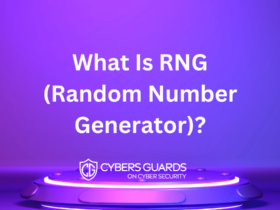The answer to the question “how is the metaverse kept secure?” is relatively unknown at this point. The metaverse concept is still very new, and how it will operate in the world and how vendors and companies will connect with users is still being hashed out.
However, whether you will use it to play games online or for work and business, there are a few key threats and security measures that will need to be in place to ensure a safe metaverse for everyone involved.
Photo by Dima Solomin on Unsplash
Key Security Threats
While the security threats of the metaverse can be either vast or limited, there are four main ones that many believe will be the biggest stumbling blocks on the way to a fully safe and secure virtual world.
NFTs
Since the metaverse assets will be mainly in the form of NFTs, experts are worried about the threats to their ownership. Ransomware encryption may not change the ownership of an NFT, but it can block access to it unless the ransom is paid.
The “Darkverse”
Much like the dark web, the darkverse would be a darker, shadier side of the metaverse that could be harder to track and shut down than the regular dark web. Instead of users being faceless screen names, they could meet “in person,” something that has been almost unprecedented up until now.
Financial Fraud
Financial fraud is another major concern for users. This is due to each individual vendor being responsible for their own cyber security, meaning that the strength of the financial systems won’t always be reliable or as strong as a different one.
Privacy Threats
Privacy threats are another major concern due to the sheer amount of data that will be used and collected. Right now, it is impossible to determine the scale of the data collection. Still, considering Facebook has been vulnerable to attacks before, the same concerns are arising concerning the metaverse. We also can’t ignore the current information-sharing that has been plaguing Meta (Facebook) for years now.

Collaboration
Collaboration is the best way to remain protected in a world like a metaverse. Every vendor should and will have their own security protocols that ensure users are protected multiple times over, no matter where they are in the space.
Currently, there is a “zero trust” policy, but that will change to a “zero-touch” approach; this means security is taken out of the hands of vendors and, instead, is automated by AI, which is demonstrably better at cybersecurity compared to humans.
Democratization of Security
The security of the metaverse cannot be on the shoulders of one person or group. There will need to be a collective effort and understanding across multiple security groups and vendors if the metaverse is to remain protected.
While automation is the final goal, until then, everyone who is involved in the metaverse needs to understand how it operates and the threats it will face and also have a clear understanding of how to deal with any and all issues that may arise.
Embedded Security
If the security aspect of the metaverse is to succeed, it shouldn’t be something that is added to products or services after the fact. Security needs to start from the beginning and be embedded into every aspect of the metaverse from day 1.
There are far too many variables at play, many being unknown at this point already, to risk there being any leaks. This becomes even more critical when you consider how quickly many enterprises are looking to get into the metaverse as soon as possible; security can’t be an afterthought and should be part of the “joining” process.

Conclusion
As stated already, the metaverse is far too young to have all the security answers already. There will need to be a serious collective effort from the start if there is going to be any long-term success for the platform, ignoring the current problems it faces.
In the end, only time will tell if the enterprises, engineers, and all of those involved take the necessary steps to protect themselves and their users and keep the metaverse as safe as they can possibly make it.










FIND US ON SOCIALS